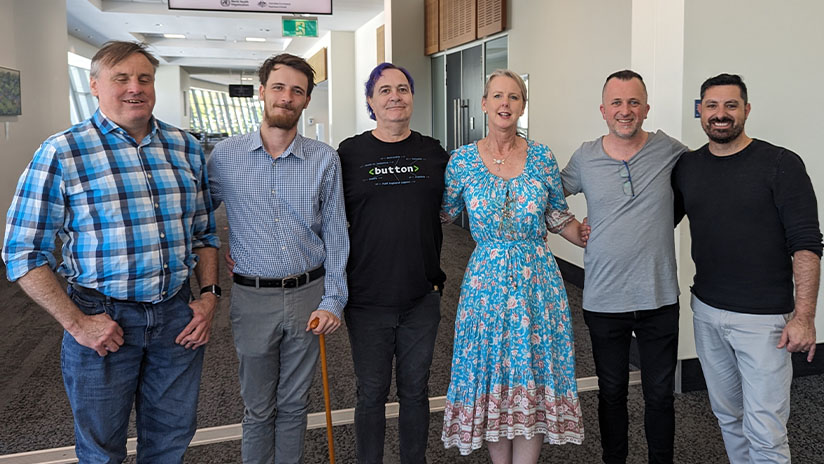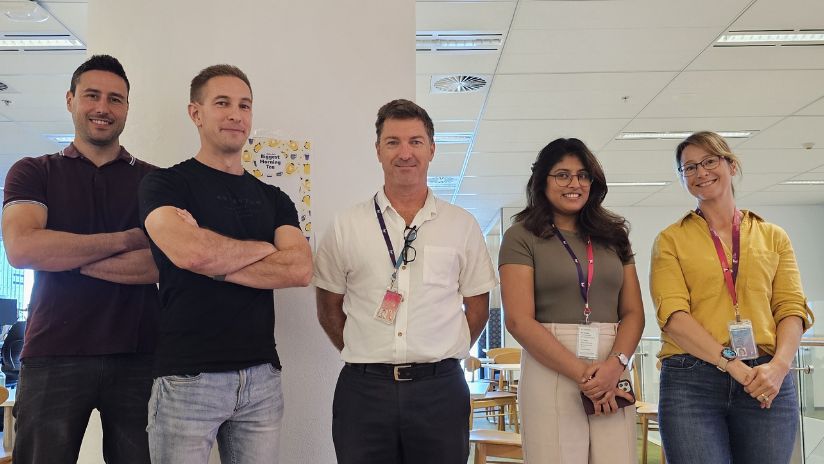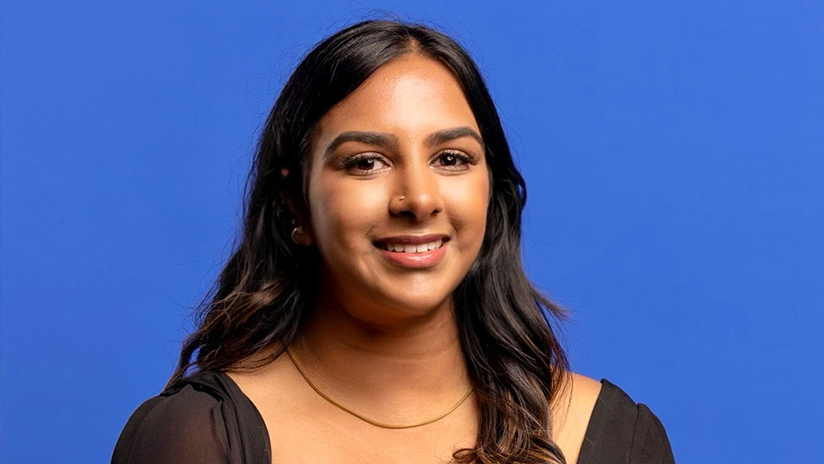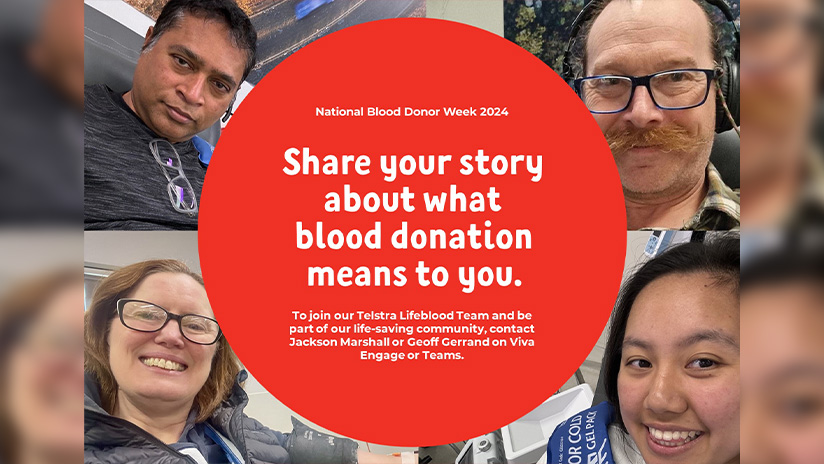Giving accessibility its deserved place
Telstra is committed to connecting with people from all walks of life, including those living with disability. That’s why accessibility is a top priority for us, from the people we hire to those already working for us, and the broader customer community.

Lorraine stands beside fellow Telstra colleagues
Telstra is committed to connecting with people from all walks of life, including those living with disability.
That’s why accessibility is a top priority for us, from the people we hire to those already working for us, and the broader customer community.
Read about our passion for accessibility. Let’s now hear from one of our employees about how we make accessibility a reality. Lorraine Greenaway is an Accessibility Lead with Telstra.
Accessibility is our mantra
Telstra's purpose is "to build a connected future so everyone can thrive" and everyone here refers to our customers, our people and our community. There are people in our community and workplace who aren't able to access our support, services or products because their unique circumstances have not been considered.
Our passionate and caring team is committed to changing that.
We bring lived experience, a wide range of skills, and a desire to support people in accessing our websites, mobile apps, services, and internal employee tools.
In our community, about one in five have a disability, and this increases to nearly one in two for those aged over 65 years. When accessibility has not been considered, we are excluding these people or forcing them to find alternative ways to connect.
To bring out the best in our people, we need to give them space to bring their genuine selves to work every day. For some, that is the opportunity to share their life experiences, their passion for spreadsheets, or their ability to function without coffee. For others, that means they can be open about their disabilities.
A practical example of making an impact
A recent ABC story focused on certain people with vision impairments being unable to access their energy bills. These people were unable to review the details of their bills, pay the bills independently, or compare their accounts against other providers when seeking a better deal.
These are tasks that many of us take for granted.
We have seen this issue come up in our engagement with our telecommunications customers.
We already provided these customers with the option of printing large font bills and bills printed in braille. However, we knew our bills distributed electronically were not compatible with assistive technology, such as screen readers, used by some people with vision impairments. This included a member of our team!
In June 2022, we collaborated with several talented digital engineers to create an accessible phone bill. We expanded this to include a range of documents such as receipts, adjustment notices and credit notes, and we now distribute about five million accessible payment documents every month.
Ignore accessibility at your peril
Accessibility is about diversity, equity and inclusion and allows an organisation to support all its people. If we ignore accessibility, we are discriminating and excluding people in our community.
People with disability are protected from discrimination by Australian and international laws. Failure by organisations to adhere to these laws can result in serious infringements and reputational damage. You only need to do a quick Google search to see how certain situations or events that are badly managed quickly escalate into a much bigger issue.
The facts don’t lie: 2.1 million Australians aged 15-64 have a disability and 50% of those are over 65.
Accessibility helps to support 19% of Australians who speak a language other than English and 53.4% of people with disability in the workforce. It supports engagement for those with temporary or situational disabilities, not just those with permanent disabilities.
Video brings us together
Some colleagues in our team have hearing disabilities. We utilise the tools in Microsoft Teams to produce closed captioning for our meetings. Meeting online can present technology issues at times and may impact the clarity of our voices or videos. Colleagues have told us when we turn our videos on, they can also sometimes lip-read us when our voices are not clear.
Video enables us to see who is speaking and boosts our skills of lip reading and speaking. We meet daily for our online team catch-up to discuss priorities and to escalate any concerns. It’s also good socially, to relax and tell the occasional joke, which is good for all of us!
At Telstra, we believe wholeheartedly in creating an accessible workplace for all. Come check out your next dream role right here at Telstra Careers.



